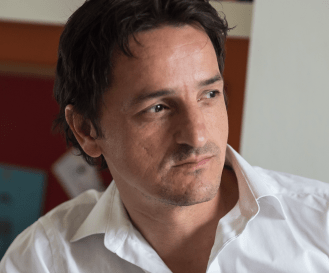 The evidence on rising drug deaths points to the need for a public health model, according to speakers at the Drugs, Alcohol and Justice Cross-Party Parliamentary Group
The evidence on rising drug deaths points to the need for a public health model, according to speakers at the Drugs, Alcohol and Justice Cross-Party Parliamentary Group
Drug poisoning accounted for one in six deaths among people in their 20s and 30s in 2015 in England and Wales – figures that included accidents and suicides and drug misuse and drug dependence, according to Vanessa Fearn and Neil Bannister of the Office for National Statistics. Data from the coroner showed that drug-related deaths (DRDs) had reached the highest level since records began, with the North East showing the highest DRD mortality rate and the East Midlands the lowest.
Deaths involving heroin or morphine had doubled in the last three years and there had been a ‘dramatic rise’ in male DRDs – some attributable to an increase in heroin purity.
Initiatives to gather and review regional evidence had shown that increased availability of heroin had ‘clearly had an impact’, combined with an ageing cohort of users, who were becoming ‘iller, frailer and less able to withstand the rigours of a drug-using lifestyle’, said Rosanna O’Connor, director for alcohol, drugs and tobacco at Public Health England.
 At least half of the people dying were not currently in treatment, so some were likely to be chaotic. The increase in problems with prescription medicines was another contributing factor.
At least half of the people dying were not currently in treatment, so some were likely to be chaotic. The increase in problems with prescription medicines was another contributing factor.
‘Until the needs of this ageing group are met, these figures may continue to rise,’ she said, adding that ‘Deaths map onto areas of high health inequality.’
PHE had developed principles for action, which included applying a ‘whole system approach’ to meeting people’s needs and addressing both mental and physical health, alongside drug use. Recent initiatives included getting a DRD indicator into the public health outcomes framework and giving commissioners advice on naloxone provision.
 As so many people dying were not in treatment, how could we protect outreach services to ensure they reach them, asked John Jolly, chief executive of the treatment charity Blenheim. ‘The capacity of treatment services to deal with other than their typical cohorts is being reduced,’ he said.
As so many people dying were not in treatment, how could we protect outreach services to ensure they reach them, asked John Jolly, chief executive of the treatment charity Blenheim. ‘The capacity of treatment services to deal with other than their typical cohorts is being reduced,’ he said.
‘We need engagement in all places where people butt up against the criminal justice system,’ said O’Connor.
Ed Morrow, PR and campaigns manager at the Royal Society for Public Health, explained that public health had previously been ‘a bit reluctant to get involved with the discourse around drugs – but that’s changed’.
‘There’s too much government fixation on measuring use, but we have to remember that a lot of people use without having problems,’ he said. ‘We need to give people the information to make informed decisions.’
There were 80,000 people a year involved with the criminal justice system relating to drugs (not just incarcerated) and this had a ‘major effect on their lives’. Transferring responsibility for the drug strategy from the Home Office to the Department of Health would be an ‘important symbolic move’, he said.
Decriminalisation could help to counter the damage caused by disinvestment in outreach work and the RSPH was also keen on the idea of a wider public health workforce – ‘people who have an opportunity to work with problematic drug users’.
 Steve Rolles, senior policy analyst for Transform Drug Policy Foundation, had worked with RSPH on their approach and hoped that ‘this has paved the way for other public health bodies to look at these issues’.
Steve Rolles, senior policy analyst for Transform Drug Policy Foundation, had worked with RSPH on their approach and hoped that ‘this has paved the way for other public health bodies to look at these issues’.
‘It’s not a marginal issue anymore,’ he said. ‘Big lumbering conservative institutions are supporting these initiatives.’
Political support was accompanied by a growing bank of evidence. ‘We know that criminalisation has a direct effect on risk – it makes people harder to reach,’ he said. People were more likely to use alone or to share equipment.
In the 90 supervised injection facilities across the world, there had never been an overdose death, making them both effective and cost effective, said Rolles – ‘Yet still in the UK we don’t have a single one.’ We could create one through localism, he pointed out – ‘we don’t need to change the law to open one’.
